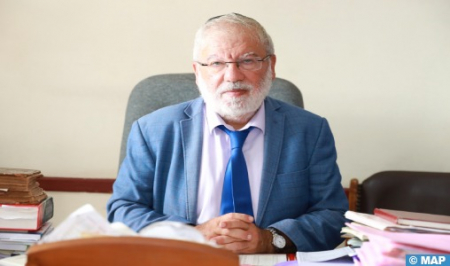Moroccan Sahara: Israeli Recognition Enshrines Obvious Truth – Chief Rabbi of Casablanca
Israel’s decision to recognize Morocco’s sovereignty over its Sahara is a position that enshrines an obvious truth, namely the historical fact that the Sahara has always been Moroccan, said the Chief Rabbi of Casablanca, Joseph Israël. With the resumption of relations between Morocco and Israel, it is “normal that Mr. Benjamin Netanyahu recognizes that the Sahara is Moroccan. It’s a truth and something obvious,” Joseph Israël, who is also president of the Hebrew Chamber at the Court of First Instance in Casablanca, told MAP. In this regard, he wished to emphasize the wisdom, finesse and farsightedness of the diplomatic actions of HM King Mohammed VI, which “have their source in the goodness and the good heart” of the Sovereign, while recalling the genius of the late HM Hassan II, who, thanks to the Green March, was able to recover the southern provinces without shedding a drop of blood. While praying to the Almighty to preserve His Majesty the King and grant Him a long life, the Chief Rabbi highlighted the efforts made by the Sovereign for the development, prosperity and happiness of his country and his people, both of the Muslim and Jewish faiths. “Moroccans of the Jewish faith have always lived in harmony and symbiosis with their Muslim patriots,” and with the resumption of relations between the two countries, especially with direct flights, Jewish Moroccans abroad will have the opportunity to visit their homeland with greater ease, he noted. According to Joseph Israël, the resumption of Moroccan-Israeli relations has “brought happiness to Moroccans of the Jewish faith” and will further consolidate human relations between Moroccans at home and abroad, in addition to the economic aspect with the promotion of specific economic cooperation in tourism and investment. He concludes that “we are proud in Morocco to have a Hebrew Chamber that pronounces sentences in the name of HM the King,” an achievement that is very much in keeping with the uniqueness of the Moroccan model, since even in Israel there is only the secular civil court.

